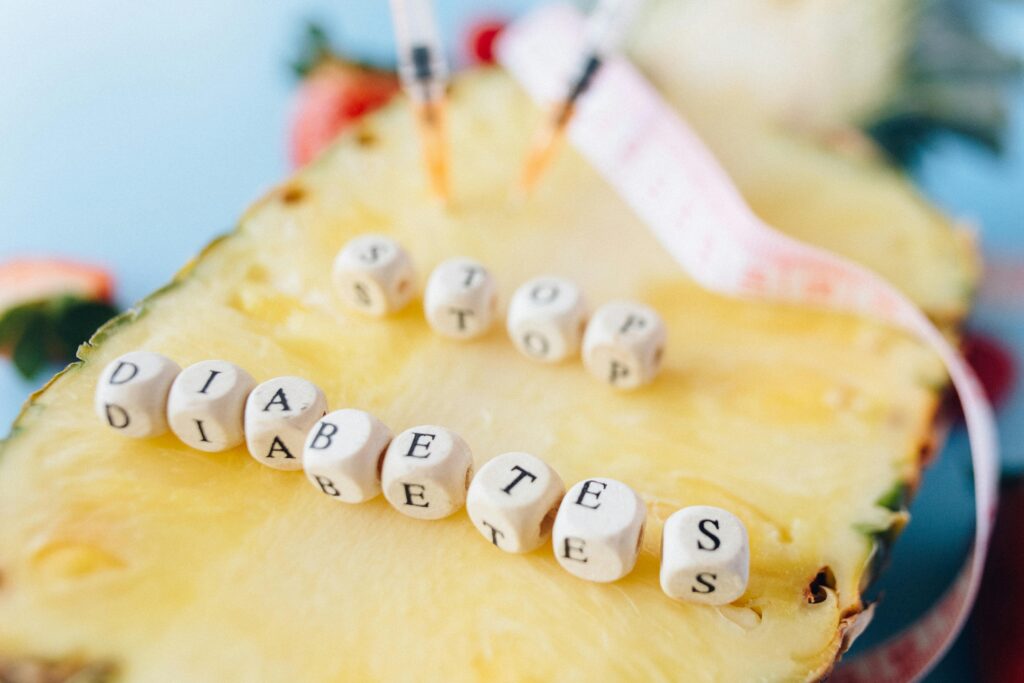Struggling with diabetes? Let’s talk natural remedies and balance it out together!
Diabetes, a chronic condition characterized by high blood sugar levels, affects millions of people worldwide. While medication and lifestyle modifications are commonly used to manage diabetes, many individuals seek natural remedies to complement their treatment plan and promote better blood sugar control. In this blog, we’ll explore evidence-based natural remedies that can help manage diabetes effectively and improve overall well-being. Balancing diabetes through a healthy diet and natural remedies is key to managing this condition effectively. By making mindful choices in what we eat and incorporating natural remedies into our routine, we can take control of our health in a holistic way. 1. Balanced Diet: Eating a balanced diet is essential for managing diabetes naturally. Focus on whole, unprocessed foods that are low in refined sugars and carbohydrates. Incorporate plenty of fiber-rich foods such as vegetables, fruits, whole grains, legumes, and nuts into your meals. These foods help stabilize blood sugar levels, promote satiety, and support digestive health. 2. Regular Exercise: Physical activity is a cornerstone of diabetes management. Engaging in regular exercise helps improve insulin sensitivity, lower blood sugar levels, and maintain a healthy weight. Aim for at least 30 minutes of moderate-intensity exercise, such as brisk walking, cycling, or swimming, most days of the week. Additionally, include strength training exercises to build muscle mass and further enhance insulin sensitivity. 3. Herbal Remedies: Several herbs and spices have been shown to have beneficial effects on blood sugar control. Consider incorporating the following herbs and spices into your diet: Cinnamon: Studies suggest that cinnamon may help improve insulin sensitivity and lower blood sugar levels. Add a sprinkle of cinnamon to your morning oatmeal, yogurt, or smoothie for a delicious and healthful boost. Fenugreek: Fenugreek seeds contain soluble fiber and compounds that may help lower blood sugar levels. You can soak fenugreek seeds overnight and consume them in the morning or use fenugreek powder as a spice in cooking. Ginger: Ginger has anti-inflammatory properties and may help improve insulin sensitivity. Enjoy ginger tea or incorporate fresh ginger into your meals for added flavor and potential health benefits. 4. Stress Reduction Techniques: Chronic stress can contribute to elevated blood sugar levels in individuals with diabetes. Practicing stress reduction techniques such as deep breathing, meditation, yoga, or tai chi can help lower stress hormones and promote relaxation. Incorporate these techniques into your daily routine to support overall well-being and blood sugar control. 5. Adequate Sleep: Getting enough sleep is crucial for diabetes management. Poor sleep habits can disrupt hormone levels, increase appetite, and negatively impact blood sugar control. Aim for seven to nine hours of quality sleep each night to support optimal health and blood sugar regulation. 6. Hydration: Staying hydrated is important for maintaining proper blood sugar levels and overall health. Drink plenty of water throughout the day and limit sugary beverages and caffeinated drinks, which can spike blood sugar levels and contribute to dehydration. 7. Regular Monitoring and Consultation: While natural remedies can be beneficial for managing diabetes, it’s essential to monitor your blood sugar levels regularly and consult with your healthcare provider. Your healthcare provider can provide personalized recommendations, monitor your progress, and adjust your treatment plan as needed to ensure optimal blood sugar control and overall health. Important tips to reduce the level of sugar in your diet: Maintaining a balance with diabetes can be challenging, but incorporating a healthy diet and natural remedies can make a significant difference. By focusing on nutrition and lifestyle changes, individuals with diabetes can manage their condition effectively. In nutshell, Incorporating these natural remedies into your diabetes management plan can complement traditional treatments and support better blood sugar control. However, it’s essential to approach natural remedies with caution and consult with your healthcare provider before making any significant changes to your diabetes treatment regimen. With a holistic approach to diabetes management, you can take control of your health and thrive with diabetes.
Struggling with diabetes? Let’s talk natural remedies and balance it out together! Read More »






